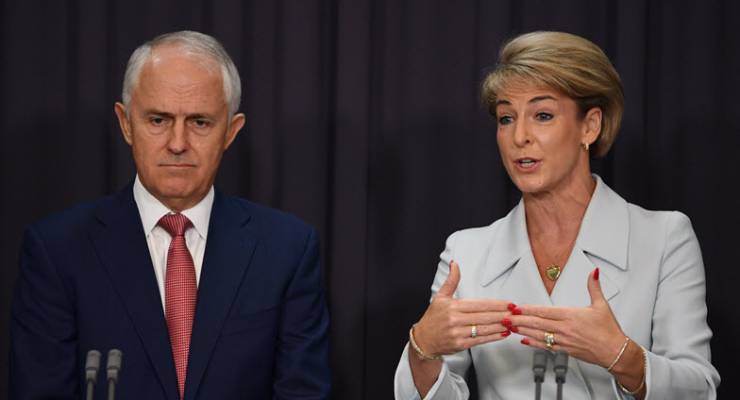
This week, the Turnbull government announced that it will introduce new laws that could see companies fined up to $4.5 million dollars for “improper payments” to union officials. It follows the Coalition’s accusations that unions frequently offer “sweetheart deals” in exchange of “backhanders” from big employers — unsurprisingly, their chief target was opposition leader Bill Shorten and the deals he struck while national secretary of the Australian Workers’ Union. The bill will add to the long list of things companies can get fined for in Australia, but where will it sit on the list of liabilities? If we take the view that a higher fine means a worse crime, what’s the worst thing a company can do, according to Australian law?
The Anti-Money Laundering and Counter-Terrorism Financing Act 2006, enforced by the Australian Transaction Reports and Analysis Centre, sets a maximum penalty of $18 million per instance for breaches by a corporation, around various requirements to identify and report suspicious transactions, and programs regarding money laundering and financing of terrorism, among other things (Tabcorp was just hit with $45 million in fines under this act this month). The Competition and Consumer Act can hit a company with fines of $10 million, three times the benefit obtained, or 10% of the annual turnover in the previous year (whichever is greater) if it is found guilty of anti-competitive practices such as “cartel conduct, exclusionary conduct, misuse of market power, exclusive dealing, resale price maintenance, and anti-competitive mergers”.
A company found guilty of engaging in false and misleading representations of financial services is at risk of a $1.8 million fine, under section 12DB of the Australian Securities and Investments Commission Act 2001. Making false or misleading representations about goods or services attracts — under section 29 of the Australian Consumer Law administered by the ACCC — a smaller fine of $1.1 million.
Being found guilty of a breach of the Corporations Act 2001 for insider trading and dishonest conduct could see a corporation fined $1.1 million.
Workplace safety is governed by state-based legislation — however Queensland, New South Wales, Victoria, South Australia, Tasmania, Northern Territory and the Australian Capital Territory all have similar provisions regarding fines, as they base their laws, with minor variations, on model legislation developed by the federal agency, Safe Work Australia. In these states, a corporation found guilty of serious breaches of their workplace safety legislation — work practices that recklessly expose employees to the risk of death or injury — will see an employer hit with a fine of up to $3 million. Victoria and Western Australia have not implemented the provision of this model legislation. Victoria can fine corporations up to $1,365,030 while WA will fine a company $500,000 for the first offence, and $625,000 for subsequent breaches.
If your employer spies on you in a way that is found to represent “serious or repeated breaches” of the Privacy Act 1988 they could part ways with $360,000.
Employment of children is again regulated by state-based legislation that sets penalties for breaches. In Victoria, a breach of the Child Employment Act 2003 can attract $10,000 in fines. Queensland’s Child Employment Act 2006 sets $12, 190 as the maximum fine for breaches. NSW can fine employers up to $10, 000. The director-general of Child and Youth Protection Services in ACT can issue an employment prohibition notice, forbidding an employer from hiring or continuing to employ a child or young person. Breaching these notices results in a fine of $7,500. In WA, an incorporated employer could be fined up to $120,000 for breaches of the Children and Community Services Act 2004, which deals with employment of children. In an example of the iron fist of the law, KFC was found to have breached this legislation in over a hundred and fifty separate instances back in 2012. It was fined $30,000.
So there you have it — secret payments between companies and unions are not nearly as bad as funding terrorism, but slightly worse than killing an employee with recklessly unsafe work practices (particularly if you’re in Perth) or misleading consumers, and WAY worse than spying on your employees or exploiting child labour.








Are payments to union officials worse than a death on a worksite? Of course it is according to Malcolm Churchill and angel Michaelia Cash “dems bad unions”, fuck the workers well being and safety. Meanwhile back in Canberra, security is being beefed up to protect politicians following the latest terrorist attack on the other side of the world in London. Yes fuck the workers.
if Charlie thinks there is a comparison between giving unions backhanders and a death in the workplace he has no idea. I am surprised that any educated person could have that opinion.